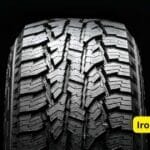Continental tires are a household name in the automotive industry. They are renowned for their quality, performance, and safety.
This guide examines whether they live up to their reputation by reviewing their strengths, weaknesses, and suitability for various driving needs.
Table of Contents
Are Continental tires good?
Continental tires are highly regarded for their performance and safety. They are known for their advanced technology, including superior grip, effective braking, and reliable handling in various conditions.
Continental tires also offer durability and longevity, often outlasting many competitors. Their commitment to innovation and quality makes them a choice for consumers seeking dependable, high-performing tires.
What are Continental Tires’ key strengths?
Several factors contribute to Continental’s reputation as a premium tire brand:
Superior Performance
Continental tires rank highly in independent tests, demonstrating exceptional handling, braking, and wet weather performance.
Their advanced tread compounds and innovative design features ensure optimal grip and control in diverse driving conditions.
Safety First
Safety is paramount for Continental. Their tires incorporate technologies like ContiSeal™ and SSR (Self Supporting Runflat), allowing drivers to continue their journey for a limited distance in case of a puncture or blowout, enhancing safety and reducing stranded situations.
Durability and Longevity
Continental tires are known for their long-lasting performance. They utilize high-quality materials and robust construction methods to deliver extended tread life, maximizing value for money.
Comfort and Refinement
Continental prioritizes a smooth and comfortable ride. Their tires often feature noise-canceling technologies and optimized tread patterns that minimize road noise and vibrations, translating to a more pleasant driving experience.
Fuel Efficiency
Many Continental tire models boast fuel-efficient designs that minimize rolling resistance. This translates to improved fuel economy, reduced environmental impact, and lower running costs.
Are Continental tires available for every need?
Continental offers a vast selection of tires catering to various driving requirements:
Performance Tires
They are designed for drivers who prioritize handling, responsiveness, and precision. These tires excel on dry roads and provide exceptional cornering and braking capabilities.
Examples include the ContiSportContact™ series and the ExtremeContact™ DWS 06 Plus.
Touring Tires
This is for drivers seeking a balance between performance, comfort, and all-weather capability. Touring tires like the PureContact™ LS and the ProContact™ TX offer a pleasant driving experience while maintaining confident handling in diverse conditions.
All-Season Tires
A versatile option for drivers who experience various weather conditions throughout the year. All-season tires like the CrossContact™ LX Sport and the TrueContact™ Tour offer year-round traction, including light snow.
Winter Tires
It is crucial for drivers navigating harsh winter conditions. Winter tires like the VikingContact™ 7 and the IceContact™ 3 provide superior grip and control on snow and ice, ensuring safe winter driving.
SUV and Truck Tires
They are designed for the specific needs of SUVs and trucks, offering robust construction, increased load capacity, and off-road capability. Examples include the ContiCrossContact™ LX 20 and the TerrainContact™ A/T.
What are the drawbacks of Continental tires?
While Continental tires offer numerous advantages, it’s essential to consider potential drawbacks:
Premium Price Point
Continental tires generally fall within the premium tire category, making them slightly costlier than some budget brands.
Limited Off-Road Options
While they offer SUVs and truck tires, Continental’s selection may not be as extensive as some brands specializing in off-road driving.

Are Continental Tires Right for You?
Whether Continental Tires is the right choice depends on your needs and priorities. Consider the following factors:
Driving style: A performance or touring tire might be ideal if you prioritize performance and handling.
Climate and weather conditions: If you experience harsh winters, invest in winter tires for optimal safety.
Vehicle type: Choose tires specifically designed for your car, SUV, or truck.
Budget: While Continental offers excellent value for money, its premium price may not suit everyone.
By considering these factors and researching specific tire models within your chosen category, you can make an informed decision and select Continental tires that suit your needs and budget perfectly.
Remember, your tires are:
- The only point of contact between your car and the road.
- So, investing in quality is crucial for ensuring safety.
- Performance.
- A comfortable driving experience.
Conclusion
Continental tires have become a top choice in the automotive industry due to their exceptional performance, safety features, and durability.
With a rich history of innovation and a diverse range of products designed to meet various driving needs, Continental tires offer impressive benefits across performance, comfort, and fuel efficiency.
FAQs
Where can I buy Continental tires?
Continental tires are available at various retailers, including tire shops, automotive service centers, and online marketplaces. You can also check Continental’s website for a list of authorized dealers and retailers in your area.
How can I determine the right Continental tire for my vehicle?
To choose the right Continental tire for your vehicle, consider your driving habits, climate, and specifications.
Are Continental tires good for winter driving?
Continental offers specific winter tire models for optimal performance in snowy and icy conditions.
Does A warranty cover continental tires?
Continental tires typically have a limited warranty covering manufacturing defects and certain performance issues. The warranty specifics can vary depending on the tire model and region, so it’s best to check with the retailer or Continental’s website for detailed information.


